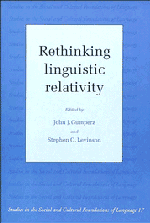
Politeness
Some Universals in Language Usage
CAD$91.95 (X)
Part of Studies in Interactional Sociolinguistics
- Authors:
- Penelope Brown, Max-Planck-Institut für Psycholinguistik, The Netherlands
- Stephen C. Levinson, Max-Planck-Institut für Psycholinguistik, The Netherlands
- Date Published: February 1987
- availability: Available
- format: Paperback
- isbn: 9780521313551
CAD$
91.95
(X)
Paperback
-
This study is about the principles for constructing polite speeches. The core of it first appeared in Questions and Politeness, edited by Esther N. Goody (now out of print). It is here reissued with a fresh introduction that surveys the considerable literature in linguistics, psychology and the social sciences that the original extended essay stimulated, and suggests distinct directions for research. The authors describe and account for some remarkable parallelisms in the linguistic construction of utterances with which people express themselves in different languages and cultures. A motive for these parallels is isolated and a universal model is constructed outlining the abstract principles underlying polite usages. This is based on the detailed study of three unrelated languages and cultures: the Tamil of South India, the Tzeltal spoken by Mayan Indians in Chiapas, Mexico, and the English of the USA and England. This volume will be of special interest to students in linguistic pragmatics, sociolinguistics, applied linguistics, anthropology, and the sociology and social psychology of interaction.
Reviews & endorsements
It has continued to inspire empirical work as 'the' source on politeness and, more generally, as an important exemplar in the study of the relationship between language and society. In addition, the broad scope of their treatment of these concerns has created a work in which many, if not most, of the assumptions guiding the contemporary study of language use are to found." Douglas G. Glick, Semiotica (1996)
Customer reviews
Review was not posted due to profanity
×Product details
- Date Published: February 1987
- format: Paperback
- isbn: 9780521313551
- length: 358 pages
- dimensions: 213 x 137 x 18 mm
- weight: 0.426kg
- contains: 8 b/w illus. 3 tables
- availability: Available
Table of Contents
Symbols and abbreviations
Foreword John J. Gumperz
Introduction to the reissue
Notes
1. Introduction
2. Summarized argument
3. The argument: intuitive bases and derivative definitions
4. On the nature of the model
5. Realizations of politeness strategies in language
6. Derivative hypotheses
7. Sociological implications
8. Implications for language studies
9. Conclusions
Notes
References
Author index
Subject index.
Sorry, this resource is locked
Please register or sign in to request access. If you are having problems accessing these resources please email [email protected]
Register Sign in» Proceed
You are now leaving the Cambridge University Press website. Your eBook purchase and download will be completed by our partner www.ebooks.com. Please see the permission section of the www.ebooks.com catalogue page for details of the print & copy limits on our eBooks.
Continue ×Are you sure you want to delete your account?
This cannot be undone.
Thank you for your feedback which will help us improve our service.
If you requested a response, we will make sure to get back to you shortly.
×











